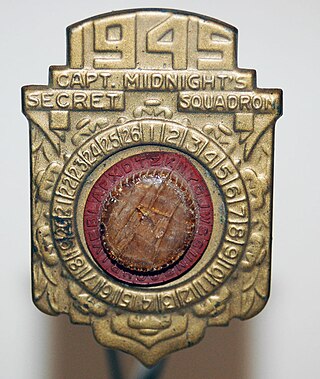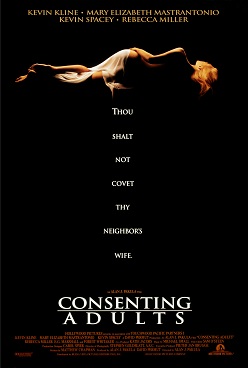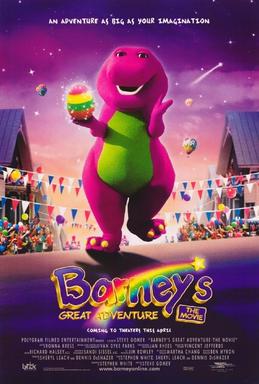Related Research Articles

Monopoly is a multiplayer economics-themed board game. In the game, players roll two dice to move around the game board, buying and trading properties and developing them with houses and hotels. Players collect rent from their opponents and aim to drive them into bankruptcy. Money can also be gained or lost through Chance and Community Chest cards and tax squares. Players receive a salary every time they pass "Go" and can end up in jail, from which they cannot move until they have met one of three conditions. House rules, hundreds of different editions, many spin-offs, and related media exist. Monopoly has become a part of international popular culture, having been licensed locally in more than 103 countries and printed in more than 37 languages. As of 2015, it was estimated that the game had sold 275 million copies worldwide. The original game was based on locations in Atlantic City, New Jersey, United States.

Little Orphan Annie was a daily American comic strip created by Harold Gray and syndicated by the Tribune Media Services. The strip took its name from the 1885 poem "Little Orphant Annie" by James Whitcomb Riley, and it made its debut on August 5, 1924, in the New York Daily News.

Parker Brothers was an American toy and game manufacturer which in 1991 became a brand of Hasbro. More than 1,800 games were published under the Parker Brothers name since 1883. Among its products were Monopoly, Clue, Sorry!, Risk, Trivial Pursuit, Ouija, Aggravation, Bop It, Scrabble, and Probe. The trade name became defunct with former products being marketed under the "Hasbro Gaming" label with the logo shown on Monopoly games.

A secret decoder ring is a device that allows one to decode a simple substitution cipher—or to encrypt a message by working in the opposite direction.

Leonard Michael Maltin is an American film critic and film historian, as well as an author of several mainstream books on cinema, focusing on nostalgic, celebratory narratives. He is perhaps best known for his book of film capsule reviews, Leonard Maltin's Movie Guide, published annually from 1969 to 2014. Maltin was the film critic on Entertainment Tonight from 1982 to 2010. He currently teaches at the USC School of Cinematic Arts and has appeared regularly on Turner Classic Movies, and hosts the weekly podcast Maltin on Movies. He has written articles for The New York Times, The Los Angeles Times, Variety, Playboy and TV Guide. He served two terms as President of the Los Angeles Film Critics Association, and votes for films to be selected for the National Film Registry.

Annie is a musical with music by Charles Strouse, lyrics by Martin Charnin, and a book by Thomas Meehan. It is based on the 1924 comic strip Little Orphan Annie by Harold Gray. The original Broadway production opened in 1977 and ran for nearly six years, setting a record for the Alvin Theatre. It spawned numerous productions in many countries, as well as national tours, and won seven Tony Awards, including for Best Musical. The musical's songs "Tomorrow" and "It's the Hard Knock Life" are among its most popular musical numbers.

Charles Brace Darrow was an American board game designer who is credited as the inventor of the board game Monopoly. Although the original idea for the game came from Lizzie Magie's The Landlord's Game, Darrow has been credited as the creator by Parker Brothers, the game's publisher.

Consenting Adults is a 1992 American mystery crime-thriller film directed by Alan J. Pakula, and stars Kevin Kline, Mary Elizabeth Mastrantonio, Kevin Spacey and Rebecca Miller. The original music score was composed by Michael Small. The film's tagline is: "Thou shalt not covet thy neighbor's wife."

Joe Penner was an American vaudeville, radio, and film comedian.

Elizabeth J. Magie Phillips was an American game designer, writer, feminist, and Georgist. She invented The Landlord's Game, the precursor to Monopoly, to illustrate teachings of the progressive era economist Henry George.
In broadcast programming, dayparting is the practice of dividing the broadcast day into several parts, in which a different type of radio programming or television show appropriate for that time period is aired. Television programs are most often geared toward a particular demography, and what the target audience typically engages in at that time.
The Land Before Time IX: Journey to Big Water is a 2002 direct-to-video animated adventure musical film and the ninth film in The Land Before Time series. It was produced and directed by Charles Grosvenor. This is also the last film to use the soundtrack composed by James Horner. During the year this was released, Universal brought back on DVD, for the first time, two of the previous The Land Before Time films: The Great Valley Adventure and The Time of the Great Giving.

Barney's Great Adventure is a 1998 musical comedy adventure film based on the children's television series Barney & Friends, featuring Barney the Dinosaur in his first feature-length film. The plot follows Barney, along with three young children named Cody, Abby, and Marcella, as they discover a magical egg in a barn. After learning that the egg is a dream maker, Barney and the gang must return the egg to the barn before it hatches. The film was written by Stephen White, directed by Steve Gomer, produced by Sheryl Leach and Lyrick Studios and released by PolyGram Filmed Entertainment on March 27, 1998 at Radio City Music Hall in New York and worldwide on April 3, 1998 in the United States and Canada at the height of Barney's popularity.

Seth Benjamin Green is an American actor. His film debut came with a role in the comedy-drama film The Hotel New Hampshire (1984), and he went on to have supporting roles in comedy films throughout the 1980s, including Radio Days (1987) and Big Business (1988).

Way Back Home is a 1931 American Pre-Code drama film directed by William A. Seiter and starring Phillips Lord, Effie Palmer, Frank Albertson, and Bette Davis. The screenplay by Jane Murfin is based on characters created for the NBC Radio show Seth Parker by Phillips Lord.

Annie is a 1982 American musical comedy-drama film based on the 1977 Broadway musical of the same name by Charles Strouse, Martin Charnin and Thomas Meehan, which in turn is based on the Little Orphan Annie comic strip created by Harold Gray. Directed by John Huston and written by Carol Sobieski, the cast includes Albert Finney, Carol Burnett, Bernadette Peters, Ann Reinking, Tim Curry, Geoffrey Holder, Edward Herrmann, with Aileen Quinn as the title character. It is the first film adaptation of the musical.

Im Ye-jin is a South Korean actress. Affectionately called the original "Nation's Little Sister, Im debuted as a teenage actress taking on roles of the “pretty teenaged student” in several movies and TV series – helping her win the title of everyone’s favorite “dongseng ” in her time. She reached the peak of her popularity in the 1970s with the "Really Really" film trilogy, which includes Never Forget Me, I Am Really Sorry, and I Really Really Like You. She is currently active in television.
Little Orphan Annie is an American radio drama series based on the popularity of the comic strip Little Orphan Annie. It debuted on Chicago's WGN in 1930, then moved to the NBC radio network Blue Network on April 6, 1931. It aired until April 26, 1942.
Freeform is an American basic cable channel owned and operated by ABC Family Worldwide, a sub-division of the Disney Entertainment business segment and division of the Walt Disney Company. Freeform primarily broadcasts programming geared toward teenagers and young adults – with some skewing toward young women – in the 14–34 age range, a target demographic designated by the channel as "becomers". Its programming includes contemporary off-network syndicated reruns and original series, feature films, and made-for-TV original movies.

Annie is an American media franchise created by Harold Gray. The original comic strip created by Harold Gray, Little Orphan Annie, is based on the 1885 poem of the same name written by James Whitcomb Riley. Its most notable adaptation is the 1977 musical Annie that won 7 Tony Awards which has been adapted four times on screen for both the big screen and television. The musical also has two sequels titled Annie 2: Miss Hannigan's Revenge (1989) and Annie Warbucks (1992). The 1982 film also has a television film sequel Annie: A Royal Adventure! (1995).
References
- ↑ "How Movies Got Us Through the Great Depression". Best Movies by Farr. Retrieved 2018-04-16.
- ↑ "Art and Entertainment in the 1930s and 1940s". Great Depression and World War II, 1929-1945. Library of Congress. 2002-09-26. Archived from the original on 2011-06-05. Retrieved 2010-09-12.
- ↑ History of the board game Monopoly
- ↑ Sorry! (game)
- 1 2 Anisa; Michelle. "The 1930s: A Time of Depression". Kyrene School District No. 2098. Archived from the original on 2010-02-14. Retrieved 2010-09-12.